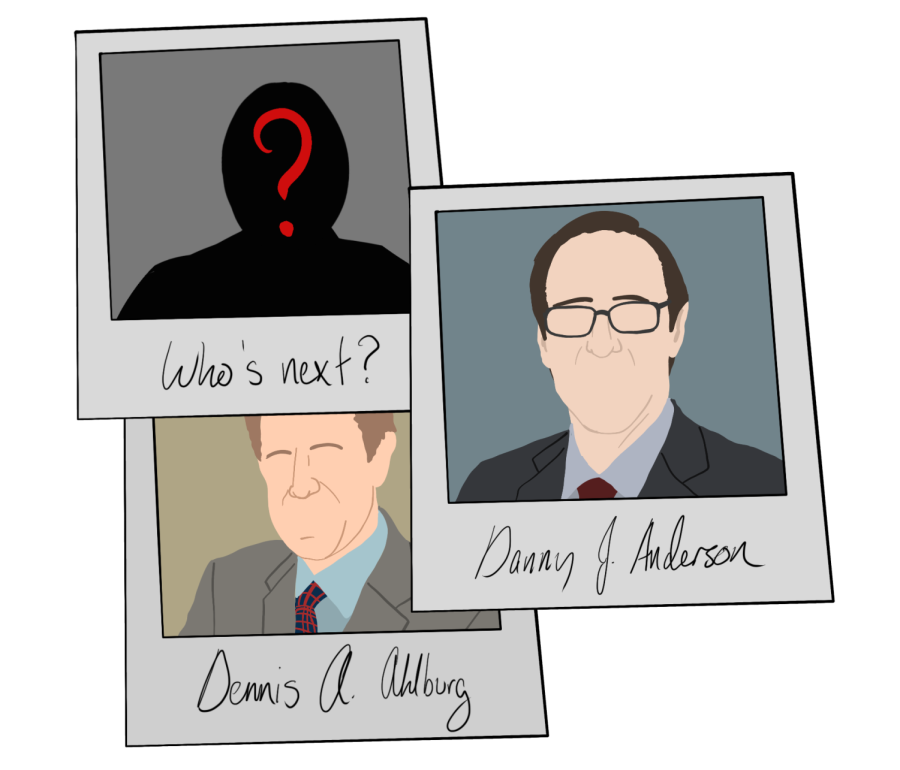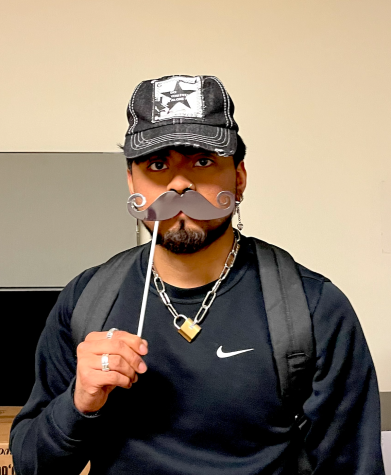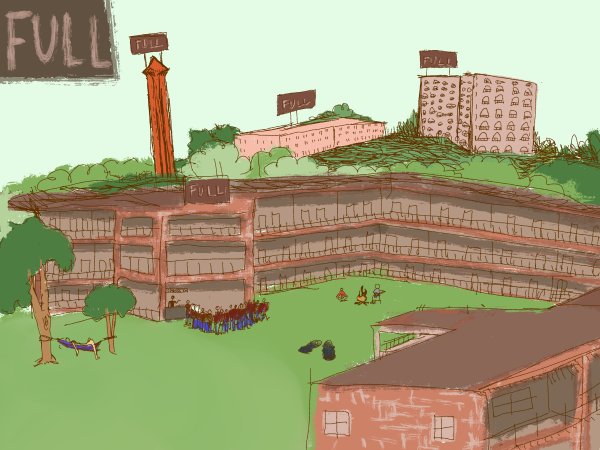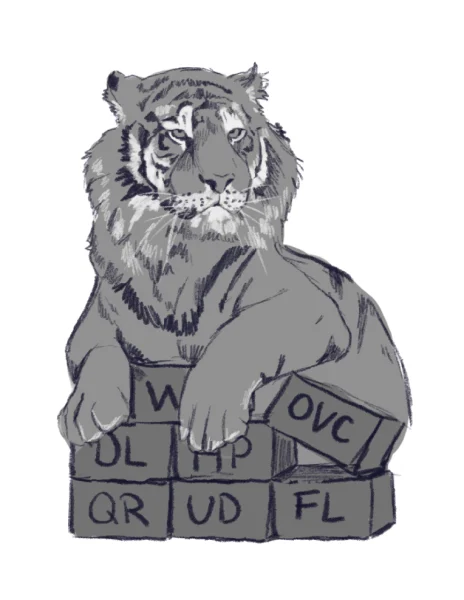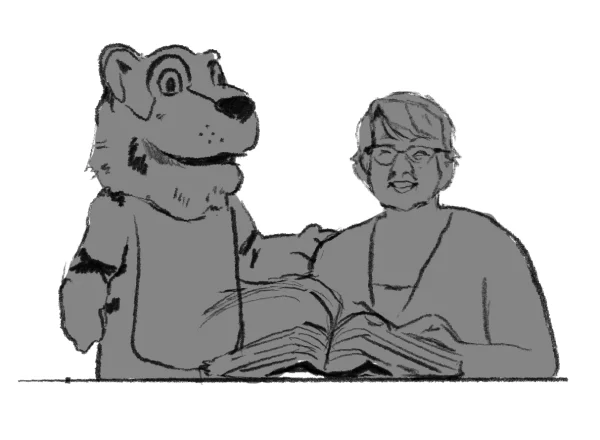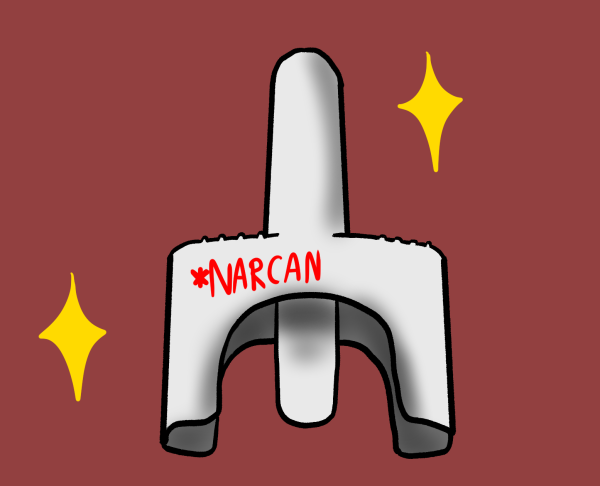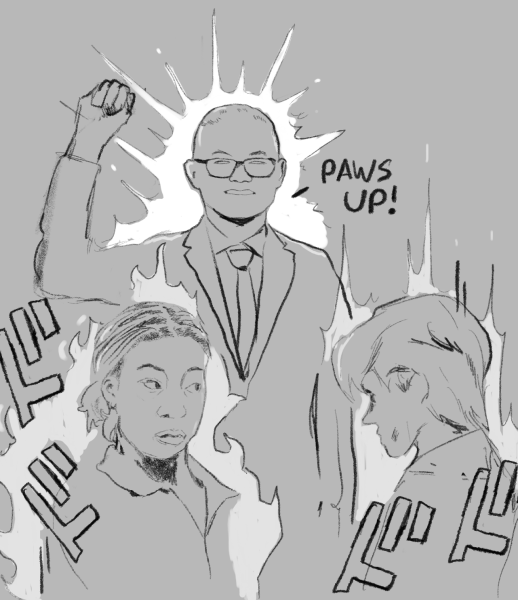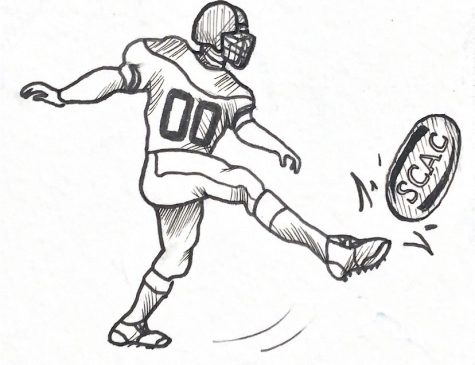The search is on for Trinity’s next president
The Presidential Search Committee continues to review applicants
The search for Trinity University’s 20th president is well on its way as the Presidential Search Committee continues to receive and review applicants. Danny Anderson, Trinity’s 19th president, announced in October that he would be retiring this May.
Anderson first came to Trinity in June 2015. In a video message addressed to Trinity students, he expressed gratitude for the past seven years.
“When I came to Trinity, I went through a process of discerning that I could bring value to the university,” Anderson said. “I’ve done my utmost to achieve this goal, and I’ve also strived to enable others to do the same.”
The Board of Trustees heads up the Presidential Search Committee, a group that includes faculty, staff, one student and one alumni representative. The search is currently open and does not have a set end date. According to Erin Baker, a Trustee and the Chair of the Presidential Search Committee, most of the timeline remains confidential.
“I can’t get into the details of where we are in exactly that process right now, but I am very happy to report that it is tracking the plan,” Baker said. “Our search consultants have partnered with us and are doing a great job with bringing our attention to prospects and prospective candidates.”
Early in the search process, Trinity’s search consultants put together a survey that was sent out to all faculty, staff, students, alumni and even parents. The goal was to get feedback from multiple constituencies that have a stake in who the next president is and how they will impact Trinity.
“Roughly, if you count all alumni, well over 20,000 people had an opportunity to opine and to provide feedback on what, you know, the qualities and characteristics they would like to see in the next president,” Baker said.
The survey provided multiple choice questions to identify certain characteristics someone might want in a president, as well as a short answer opportunity to write a free-response. Using the survey responses as well as feedback from over a dozen focus groups including faculty, staff and students, the Presidential Search Committee created the official job description.
Chad Spigel, professor of religion, serves on the Presidential Search Committee and has a finger on the pulse of the faculty at large thanks to his position as Chair of the Faculty Senate. He said the feedback from the Trinity community has been indispensable.
“We realize that, although we are the ones that are actually reviewing the candidates and ultimately making the recommendation for who should be hired as the president, we’re doing so with all of the concerns, issues, needs and desires that were communicated to us in the early stages of the process,” Spigel said.
As the search continues, Spigel said he feels honored to be entrusted with a role on the committee.
“[It’s] our 20th president that we’ll be hiring,” Spigel said. “That’s not a lot of people who have been hired to run what I feel is a fabulous institution, an institution that does wonderful things for our students, for our staff and for our faculty in terms of educating, but also in terms of developing careers for people who work here.”
Baker, who graduated from Trinity in 1999, served on the search committee that hired Anderson as the Alumni Association Representative. She said she also feels honored to be involved again, even though the search is a full-time job.
“I’m very dedicated to it,” Baker said. “I am very committed to my alma mater and to the experience I had and [want] to continue to see that experience be available to students. So it’s something that I take a lot of pride in, to be a part of.”
Whoever steps in to replace Anderson will not only be taking over the official title but all the goals that come with it. According to the Presidential Search Prospectus, one of Trinity’s objectives is ranking as a top 25 liberal arts college in the U.S. News and World Report. In more abstract terms, they will also be working toward goals of raising visibility and resources, enhancing academic excellence and strengthening organizational capacity. In short, it’s no small job.
“[The search is] intensive not only because we presumably are getting a lot of applications and materials we have to review, but just the implications,” Spigel said. “This is a position that we want to hire a person who’s going to succeed in the position for their benefit, but also, especially, for the benefit of Trinity University. There’s a lot riding on what we’re doing right now.”
While the formal process for providing feedback was concluded in January, the Trinity community can still send thoughts or inquiries by email to [email protected].
“For Trinity, this is a transition,” Anderson said in his video message. “My successor will arrive to take the baton as Trinity continues to accelerate what comes next in the history of this university.”
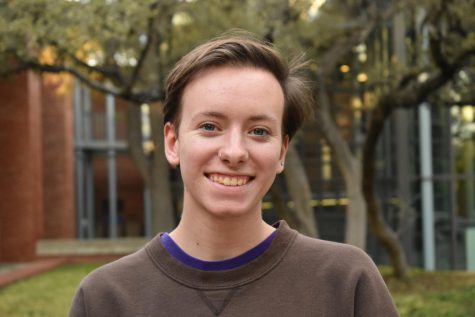
I am a senior French and Earth Systems Science double major from St. Louis, MO. When I'm not wearing my EIC hat, I am also a Chapel | Spiritual Life Fellow,...
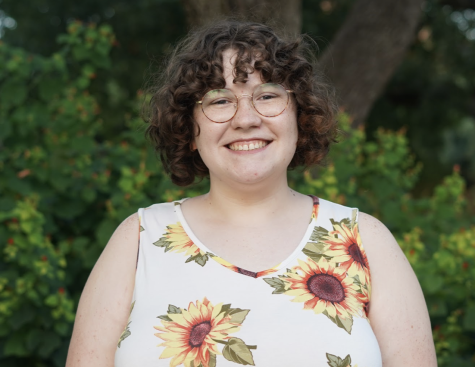
I'm a senior Computer Science major and a Classical Studies minor from Newton, North Carolina with a passion for art. I also work at the Center for Experiential...

